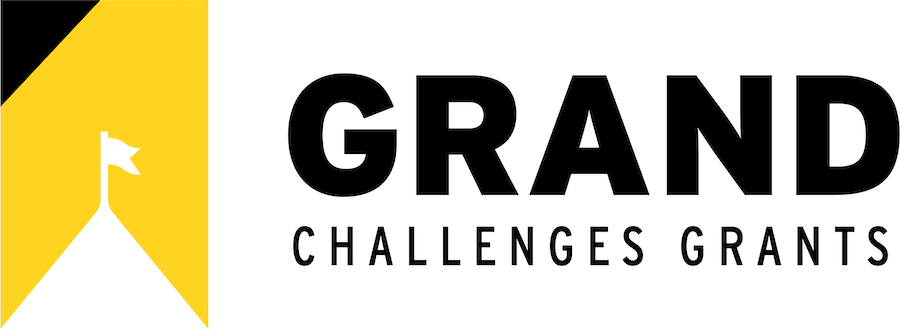Information Accessibility & Technology Adoption for People with Down Syndrome
Expanding education, career and independent living opportunities for people with Down Syndrome
The research projects have been funded by the National Science Foundation, and the Google Award for Inclusion Research Program.
Project Team
Jonathan Lazar, Jinjuan Heidi Feng, & Rachel Wood (Doctoral student); Previously included: Libby Kumin, Ant
Ozok, Brian Skotko, and Brian Wentz.
Potential impact of these projects on the lives of people with disabilities:
Although the characteristics of Down syndrome have been thoroughly studied and documented, knowledge had been very limited on how those characteristics affect the development of computer skills and the adoption of information technology. Most of the software and digital content that people with Down syndrome interact with are designed without consideration of their unique needs, making the software applications or information less effective or completely inaccessible. Our work was among the early efforts to fill this gap through the examination of a broad range of digital technology usage activities by people with Down syndrome.
Current Health Data Visualization Accessibility Research
Most patient-facing health portals present health data to people with Down Syndrome (DS) in ways that are inaccessible to them, making it difficult to interpret, understand, and utilize the data to make informed decisions and behavioral changes. Ph.D. student Rachel Wood is leading the effort on a multi-phase, mixed methods co-design project to investigate the potential of data storytelling to improve the accessibility and understanding of personal health data for adults with DS. Through the project, we will understand the capabilities of people with DS regarding graphical information recognition, interpretation, and engagement as well as the accessibility barriers that they encounter during the process. Accessible health data presentation applications and guidelines will be developed. We will also develop inclusive design methods and materials for facilitating the involvement of people with DS in design studies. This project may help people with DS to better understand and engage with their health data, and therefore, take a more active role in their personal health management and decision-making process.
Publications
- Feng, J., Lazar, J., Kumin, L., and Ozok, A. (2008). Computer Usage by Young Individuals with Down Syndrome. Proceedings of the ACM Conference on Accessible Technologies (ASSETS), 35-42. Note: This paper won the BEST PAPER AWARD at ASSETS 2008.
- Feng, J., Lazar, J., Kumin, L., and Ozok, A. (2010) Computer Usage by Children with Down Syndrome: Challenges and Future Research. ACM Transactions on Accessible Computing. Vol. 2(3). March 2010. 13-44.
- Kumin, L., Lazar, J., Feng, J., Wentz, B., and Ekedebe, N. (2012) Usability Evaluation of Workplace-Related Tasks on a Multi-Touch Tablet Computer by Adults with Down Syndrome. Journal of Usability Studies 7(4) August 2012, 118-142.
- Hu, R., Feng, J., Lazar, J., and Kumin, L. (2013) Investigating Input Technologies for Children and Young Adults with Down Syndrome. Universal Access in the Information Society. Vol. 12(1) March 2013, 89-104.
- Lazar, J., Woglom, C., Chung, J., Schwartz, A., Hsieh, Y., Moore, R., Crowley, D., and Skotko, B. (2018). Co-Design Process of a Smartphone App to help People with Down Syndrome Manage their Nutritional Habits. Journal of Usability Studies, 13(2), 73-93.
- Lazar, J., Kumin, L., and Feng, J. (2011). Understanding the Computer Skills of Adult Expert Users with Down Syndrome: An Exploratory Study. Proceedings of the ACM 2011 Conference on Accessible Technologies (ASSETS), 51-58.
- Ma, Y., Feng, J., Kumin, L., and Lazar, J. (2013) Investigating user behavior for authentication methods: A comparison between individuals with Down syndrome and neurotypical users. ACM Transactions on Accessible Computing. Vol. 4(4) July 2013, 1-27.
- Hu, R. and Feng, J. (2015) Investigating information search by people with cognitive disabilities. ACM Transactions on Accessible Computing. Vol. 7(1) June 2015, 1-30.
- Wood, R., Feng, J., Lazar, J., and Forsythe-Korzeniewicz, A. (2023). Creating Inclusive Materials and Methods for Co-Designing Health Information Technologies with People who have Down Syndrome. In Goodman-Deane, J., Dong, H., Heylighen, A., Lazar, J., and Clarkson, J. (eds.) Design for Sustainable Inclusion. London: Springer-Verlag, 178-187.




